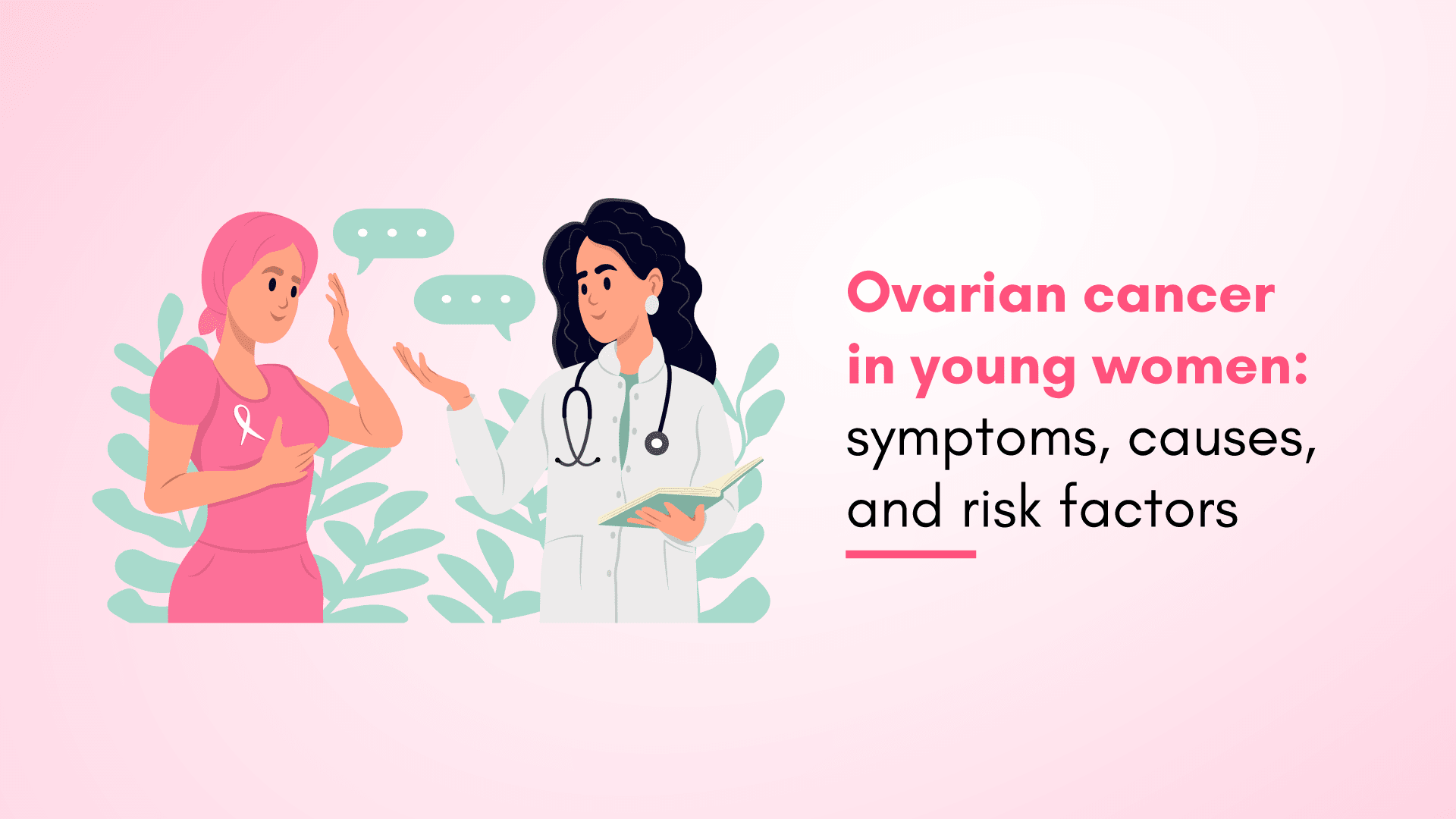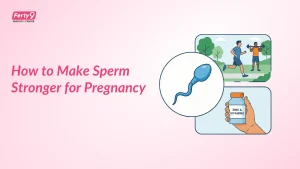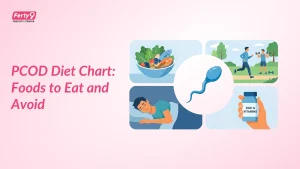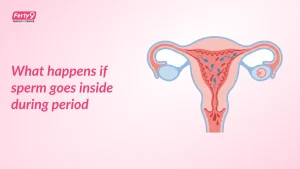Have you ever wondered why ovarian cancer is often called the “silent killer”? Detecting ovarian cancer in young women is challenging, as it often goes unnoticed until advanced stages, making awareness and early detection crucial. Understanding the causes, risk factors, and symptoms of this reproductive cancer in young females can help in taking proactive steps towards early diagnosis and treatment.
In this blog, we will explore everything you need to know about ovarian cancer in young women, from its symptoms and risk factors to treatment options and preventive measures. Stay informed and protect your health by learning more about this serious condition.
What is Ovarian Cancer?
Ovarian cancer is formed in the ovaries, the female reproductive organs that produce eggs. It happens when cells grow abnormally and multiply out of control in the ovaries. Thus leading to the formation of tumors that spread to other parts of the body. Regular check-ups and awareness of personal health are important in managing the risk of ovarian cancer.
Types of Ovarian Cancer
There are different types of ovarian cancer, each originating from various cells within the ovary. Here are the main types of ovarian cancer:
- Epithelial ovarian cancer: They are most common and arise from the outer surface of the ovary.
- Germ cell tumors: These develop from the cells that produce eggs, typically in younger women.
- Stromal tumors: They originate from ovarian connective tissue cells that produce hormones.
Understanding the different types of ovarian cancer is crucial for proper treatment, as each type responds differently to various therapies.
Suggested Read: Fertility Preservation Options For Cancer Patients
Symptoms of Ovarian Cancer in Young Women
Recognizing the signs of ovarian cancer in young females can be challenging because they are often mild and easily misunderstood as a less serious condition. Here are the key symptoms to watch for:
- Persistent abdominal bloating or swelling
- Pelvic discomfort or pain, often persistent
- Difficulty eating or feeling full quickly
- Changes in bowel habits, such as diarrhea and constipation
- Frequent need to urinate
- Painful urination
- Unexplained weight loss or gain
- Fatigue or low energy levels
- Changes in menstrual cycle, such as irregular periods
- Pain during intercourse (dyspareunia)
- Back pain
If you have persistent symptoms, ask for immediate medical help. Listening to your body and speaking up about any unusual changes is key to staying healthy.
Causes and Risk Factors
While the exact causes of ovarian cancer in females remain under investigation, several factors can increase a young woman’s risk:
- Family history: Women with a family history of ovarian, breast, or colorectal cancer have a higher risk of developing ovarian cancer.
- Inherited mutations: Mutations in genes such as BRCA1 and BRCA2 increase susceptibility associated with breast cancer.
- Early menstruation and late menopause: Women who begin to menstruate before age 12 or enter menopause after age 55 are at greater risk due to prolonged exposure to estrogen.
- Infertility: Women who have difficulty conceiving or have never had a full-term pregnancy are at a slightly higher risk.
- Obesity: Being obese or overweight has been associated with an increased risk of ovarian cancer.
- Smoking: Smoking is a commonly known risk factor for developing many types of cancer, including ovarian cancer.
- Endometriosis: Endometriosis is a disease in which the tissue, similar to the lining of the uterus, grows outside of it. Women with endometriosis have an increased risk of ovarian cancer.
- Hormone Replacement Therapy (HRT): Long-term use of HRT, especially estrogen-only therapy, can increase the risk of ovarian cancer.
- Age: Despite being more common in older women, ovarian cancer can affect younger women with genetic predispositions.
Awareness of these factors helps women manage risks through lifestyle choices and regular medical consultations.
Diagnosis and Screening
There is no single test that can diagnose ovarian cancer. However, several tests can be used to help make a diagnosis. Healthcare providers use pelvic exams, imaging techniques such as ultrasound and CT scans, and blood tests to detect markers like CA-125. These methods help in identifying any abnormalities early on, improving the chances of successful treatment. Regular screenings are particularly important for women with genetic predispositions or symptoms like abdominal discomfort and bloating. Early detection is key, so be an active participant in your health!
Suggested Read: Fertility Treatment After Childhood Cancer Treatment
Treatment Options
Treatment for ovarian cancer in young women will depend on several factors, including the stage of cancer (which indicates how far the cancer has spread), the type of ovarian cancer, and the woman’s desire for future fertility.
- Stages: Ovarian cancer is staged using a system from I to IV, with Stage I being the earliest and most treatable stage and Stage IV being the most advanced. Generally, the lower the stage, the better the prognosis.
Here’s a breakdown of the common treatment options:
Surgery
Surgery is usually the first line of treatment for ovarian cancer. The type of surgery depends on the stage of the cancer and the woman’s desire for future fertility. Options include:
- Cyst removal: If the cancer is confined to a cyst in one ovary (typically Stage I), the surgeon may be able to remove the cyst and preserve the ovary. This is an option for young women who want to become pregnant in the future.
- Oophorectomy: This surgery removes one or both ovaries (common for Stage I).
- Salpingo-oophorectomy: This surgery removes both the ovaries and fallopian tubes (common for Stages I, II, III, and IV).
- Hysterectomy: This surgery removes the uterus, cervix, and ovaries (typically for advanced stages or when fertility preservation isn’t a concern).
Chemotherapy
Chemotherapy uses drugs to kill cancer cells. It is often given after surgery, particularly in later stages (Stage II, III, and IV), to kill any remaining cancer cells. Chemotherapy’s side effects are nausea, vomiting, fatigue, and hair loss.
Radiation Therapy
Radiation therapy uses high-energy rays to kill cancer cells. It is less common than chemotherapy for ovarian cancer, but it may be used in some cases, especially for advanced stages (Stages III and IV). Radiation therapy can cause fatigue, skin irritation, and diarrhea.
Targeted Therapy
It is a new type of treatment that targets specific weaknesses in cancer cells. PARP inhibitors, a type of targeted therapy, are used in treating ovarian cancer, especially in recurrent cases. Targeted therapy drugs may have fewer side effects than chemotherapy drugs.
Hormone Therapy
It may be used to treat some types of ovarian cancer, particularly in hormone-receptor-positive cases. Hormone therapy can block the production of hormones that help cancer cells grow.
Suggested Read: Role of Hormones in Fertility
Clinical Trials
The research studies that test new cancer treatments are called clinical trials. Clinical trials may be an option for women who have advanced ovarian cancer (Stage III or IV) or who have not responded to other treatments.
It’s important to discuss all of the treatment options with a doctor to decide which one is right for you, considering the specific stage and type of ovarian cancer.
How does Ovarian Cancer Affect Reproductive Health and Fertility?
Ovarian cancer can significantly impact reproductive health and fertility in young women. Here’s why:
- Ovary removal: Surgery to remove one or both ovaries eliminates egg production, causing infertility.
- Hormonal disruption: Chemotherapy and radiation can damage ovarian tissue and disrupt hormone production, impacting fertility.
- Early menopause: Treatments can induce early menopause, stopping natural conception.
However, there’s still hope for happiness!
- Fertility preservation: For some young women, options like egg freezing before treatment might be possible to preserve future fertility.
It’s crucial to discuss fertility concerns with your doctor before starting ovarian cancer treatment. They can help you understand the possible impact better and explore any fertility preservation options available.
Prevention and Risk Reduction Strategies
Ovarian cancer might not have a guaranteed prevention method, but here’s some good news: you can take charge of your risk!
- Birth control power: Using birth control pills for at least 5 years can significantly reduce your risk.
- Pregnancy perks: Having children, especially before age 26, lowers your risk.
- Tubal ligation: Tying your tubes offers some risk reduction, but women should also consider its primary purpose (preventing pregnancy).
- Healthy weight: It can be a powerful defense against many cancers, including ovarian cancer. Hence, maintaining a healthy weight is very important.
- Hormone Replacement Therapy (HRT) caution: Consider alternative therapies after menopause, as HRT use may elevate ovarian cancer risk.
Remember, these strategies can’t guarantee immunity, but they empower you to take a proactive charge of your health. Discuss these options with your doctor and create a personalized risk-reduction plan.
Suggested Read: Why Women with PCOS Are at Higher Risk of Endometrial Cancer?
Conclusion
Ovarian cancer, while serious, doesn’t have to control your path. Young women face unique challenges, but knowledge is your greatest weapon. Regular checkups, understanding your risk factors, and exploring preventive measures equip you to navigate your health with confidence. If fertility becomes a concern due to treatment, Ferty9 can be your ally in exploring options. Contact us today to learn more about fertility preservation and chart your course towards parenthood.



























